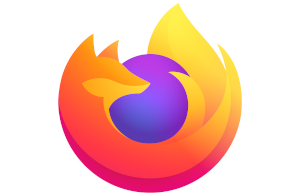The Best Web Browsers of 2026
We tested the most popular web browsers to see which is the fastest and best.
Dec 11, 2025 | Share
FAQ, Internet Speed Guides, Streaming Guides
-
Best overallGoogle Chrome
- Price: Free
- Works natively with Google services
- Syncs across multiple devices
- Outperforms the competition in speed
-
Best for securityMozilla Firefox
- Price: Free
- Blocks cryptominers
- Prevents fingerprinting
- Stores passwords locally
-
Best for customizationVivaldi
- Price: Free
- Provides high customization
- Protects against phishing
- Syncs data between devices
Our pick: Which web browser is best?
Google Chrome is our pick for the best, most well-rounded web browser you can get. It’s fast and synchronizes across every device you use. You can perform a search within the address bar, group your browser tabs, and more. Want to go dark? Chrome supports themes, too.
We spent many hours comparing the best web browsers in terms of speed using a handful of tests on Windows and Mac. We provide the results in our Methodology section to show which is the fastest web browser on your favorite desktop platform.
Do you have the slow internet blues?
Your web browser may not be making your internet connection feel as slow as snails. Enter your zip code below to find a plan that can better handle your internet speed needs.
The 6 best web browsers
- Best overall: Google Chrome
- Best for security: Mozilla Firefox
- Best for customization: Vivaldi
- Best for social media: Opera
- Best for Mac: Apple Safari
- Best for Windows: Microsoft Edge
Compare web browser features
| Browser | Availability | Best features | Get it | |
|---|---|---|---|---|
| Best overall | Google Chrome | Get Google Chrome | ||
| Best for security | Mozilla Firefox | Get Mozilla Firefox | ||
| Best for customization | Vivaldi | Get Vivaldi | ||
| Best for social media | Opera | Get Opera | ||
| Best for Mac | Apple Safari | |||
| Best for Windows | Microsoft Edge | Get Microsoft Edge |
What should you look for in a web browser?
The best web browser should be fast and clean to give you the best browsing experience. You don’t want excessive bloat that can bog down your device and cause web pages to load at a dial-up pace.
And while speed is great, security should also be a high priority. Internet browsers should protect users from trackers, hackers, and pesky internet eavesdroppers.
Ultimately, a browser should be your interactive window looking out into the World Wide Web—a picture frame that should never distract you from the view at hand. Every browser has a slightly different feel to it, so you should choose the one that fits best into your online activities.
Best overall—Google Chrome
Free
Features
- Supports Google services
- Includes tab group management
- Outperforms other browsers in tests
Availability
Base code
- Chromium
Data this browser collects from you
- User ID
- Device ID
- Location
- Audio data
And more (see App Privacy)
Our verdict
Chrome is the fastest and best web browser on Microsoft Windows and an excellent alternative to Safari on a Mac in terms of speed. However, you agree to Google’s excessive data collection in exchange for speed and convenience.
More about Google Chrome
Google Chrome is the fastest web browser available for Windows machines. It surpasses the competition in three out of four tests and outranks Microsoft Edge in all but one test.
On Apple Mac, Chrome is a heavy hitter in performance, outranking Safari in two out of four tests. It’s a good alternative to Safari, but Chrome’s data collection issues are a little disconcerting. If you’re worried about how Google uses your data, Safari or Microsoft Edge may be your better alternative.
Still, despite privacy concerns, Chrome is a great browser overall if you use Google’s services. It’s probably the ideal default browser if you shift between Windows, Android, and Apple devices.
 Pros:
Pros:
- Supports a huge extensions library
- Syncs across devices
 Cons:
Cons:
- Collects lots of data
- Uses lots of memory
Best for security—Mozilla Firefox
Free
Features
- Blocks cryptominers
- Prevents fingerprinting
- Stores passwords locally
- Ranks the lowest for speed in tests
Availability
Base code
- Quantum
Data this browser collects from you
- Contact info
- User ID
- Device ID
Our verdict
If you want the best internet browser that prioritizes security over data collection, Firefox is your best bet. However, it’s not the fastest browser available.
More about Mozilla Firefox
Mozilla’s Firefox browser isn’t known for speed. It falls into last place in most of our tests for Windows and Mac, and that’s okay. Firefox is more about security features than speed, which is ideal if you’re more concerned about blocking malware than loading pages in a flash.
Firefox received a facelift in 2021. Mozilla redesigned the tabs, prompts, menus, and overall look, giving Firefox a new modern interface. Under the hood, Firefox strives to keep you safe online with tools like DNS-over-HTTPS, which encrypts browser requests versus sending the information in plaintext.
Want to improve your home network’s security?
Be sure to check out our list of the best routers for security. We also offer a guide on how to keep your router secure if you don’t need a new one.
 Pros:
Pros:
- Protects against spyware
- Blocks almost all pop-ups
 Cons:
Cons:
- Consumes high memory
- Falls behind other browsers in speed
Best for customization—Vivaldi
Free
Features
- Provides high customization
- Protects against phishing
- Syncs data between devices
Availability
- Desktop: Windows, Mac, Linux
- Mobile: Android
Base code
- Chromium
Data this browser collects from you
- User ID
- Device ID
Our verdict
Vivaldi is great for customizing your browsing experience, but it doesn’t match the speed of Chrome or Safari.
More about Vivaldi
Vivaldi breathes new life into the tired, repetitive web browser design. Here, you can customize the start page, create and use a custom theme, customize and move the menu, customize the toolbar, and so on. You can also assign browser commands to keyboard shortcuts, map commands to gestures, and assign quick commands to the Function keys.
In terms of speed, the Vivaldi browser isn’t the fastest on the planet—at least, not yet. It’s the youngest in the batch, so there’s room for improvement. It ranks fourth in all four tests we run on Windows, while its performance jumps between third and last in the same tests on Mac.
That said, Vivaldi is an excellent middle-ground browser in terms of performance.
 Pros:
Pros:
- Offers plenty of customization
- Syncs data across devices
 Cons:
Cons:
- Lacks iPhone, iPad versions
- Consumes high memory
Best for Mac—Apple Safari
Free
Features
- Provides a clean privacy report
- Supports extensions
- Displays tab previews
- Competes with Chrome in speed on Mac
Availability
- Desktop: Mac
- Mobile: iPhone, iPad
Base code
- Nitro, WebKit
Data this browser collects from you
- Device ID
- User ID
- Diagnostics
Our verdict
Safari is the best browser for Macs, hands down. Stick with Safari if you also have an iPhone or iPad. However, if you use other platforms like Windows and Android, Chrome is the better multiplatform solution—if you can ignore Chrome’s data collection woes.
More about Apple Safari
Safari is an excellent example of how Apple optimizes its software for Macs. It’s fast, simply designed, and somewhat customizable. It supports Chrome extensions, tab previews for power users, and easy translations using the menu bar. And while we will always recommend Firefox as the best browser for security, Safari’s privacy report panel lists every website that tracks you across the internet.
The drawback with Safari is that you can’t get it on anything but Apple devices. That means we could measure its performance only on our MacBook, so there are no numbers for Windows-based PCs. That said, Safari and Chrome duke it out for the fastest browser, both taking the top spots in two out of four tests. If you want speed, either browser will do.
 Pros:
Pros:
- Runs superfast on Macs
- Uses low memory
 Cons:
Cons:
- Isn’t available outside Apple’s ecosystem
- Has a limited extensions library
Best for Windows—Microsoft Edge
Free
Features
- Stacks tabs vertically
- Groups websites into Collections
- Supports Dolby Audio and 4K
- Competes with Chrome in speed on Windows
Availability
Base code
- Chromium
Data this browser collects from you
- Device ID
- Browsing history
- Diagnostics
Bottom line
Microsoft Edge is a great native browser for Microsoft Windows and a good alternative to Safari on a Mac if you need a browser that runs outside Apple’s ecosystem.
More about Microsft Edge
The original Edge browser was a clunky mess despite Microsoft’s good intentions. It used the company’s in-house EdgeHTML engine and really couldn’t compete with Chrome. Microsoft scrapped its proprietary engine in early 2020 and chose to use the open-source Chromium browser as a foundation instead, just like Chrome, Opera, Vivaldi, Brave, and more.
Now, Microsoft Edge is highly competitive in terms of speed. On Windows, it gives Chrome a run for its money, falling just a hair behind Google’s browser in three of four of our tests. On our MacBook, Chrome and Microsoft Edge are nearly identical in performance, both falling behind Safari.
Like Google with Chrome, Microsoft has pulled some rather underhanded shenanigans with Edge, such as trying to keep Windows users from switching to another browser and inserting extra ads into web pages. Still, if you’re a Windows user and you want a fast, easy browser option, nothing’s easier than the default.
 Pros:
Pros:
- Synchronizes across devices
- Includes a PDF viewer
 Cons:
Cons:
- Lacks a version for Linux
- Collects your browser history
Which web browsers are the fastest?
To determine the fastest browser on our list, we ran four different tests three times per browser, determined the average, and compared the results.
On Windows, Chrome tested as the fastest browser, followed by Microsoft Edge.
On Mac, Safari and Chrome shared the top spot as the fastest browser, followed by Microsoft Edge.
In all tests, Firefox was the slowest browser on our list.
See the complete test results in the Methodology section.
| Rank | Windows | macOS |
|---|---|---|
| 1st | Chrome | Safari/Chrome |
| 2nd | Microsoft Edge | Microsoft Edge |
| 3rd | Opera | Opera |
| 4th | Vivaldi | Vivaldi |
| 5th | Firefox | Firefox |
Browser specs and features
A web browser is software that downloads data from a remote server and pieces it all together on your screen. It’s your interactive window to the World Wide Web, a view that exists only when you open a tab and enter an address. All browsers provide this basic function, but there are five elements you should keep in mind while considering your browser options.
Speed
You want a browser that loads pages quickly and can run in-browser apps without slowing you down. A browser should have a relatively small footprint in your system memory, so it doesn’t affect the performance of your other programs and apps while you surf the internet.
Security and privacy
A browser should make secure connections to websites. They should also provide means to block malicious advertisements, cross-site trackers, cryptominers, and fingerprinters. Users should have tools to block and delete cookies, secure their passwords, and use the browser without worrying about how it collects their data.
Learn more about the best internet browsers for security.
Customization
While you don’t want your window to the internet framed with a clunky interface, it’s a nice bonus to add a personal touch. Most of the browsers on our list provide means for customization.
For example, you can apply a theme in Chrome obtained from the Chrome Web Store. You can create themes in Vivaldi, reposition the menu, or create your own menu.
Compatibility
The best browser should be compatible with the latest internet standards, like HTML5 and WebGL. A good way to benchmark a browser’s compatibility is to use the HTML5 Test website or AnTuTu’s HTML5 Test online utility. Plus, you don’t want to install a browser that can’t access all the modern functions of a website, like web apps.
Easy navigation
While customization is great, you want a browser that’s easy to use. Most browsers we list here are just that, with the address bar headlining your window to the internet. Menus should be tucked away and easily accessible. Settings should be just a click away, and bookmarks should be easy to save and load.
Our verdict: Google Chrome is the best web browser
Google Chrome is fast and available on nearly every platform. It’s our top pick in speed, as it goes head-to-head with Safari on our MacBook and Microsoft Edge on Windows. It’s also a firm alternative if you don’t want to use those native browsers.
But Microsoft Edge is an excellent third-place browser that’s accessible on nearly all platforms. It’s almost as fast as Chrome and Safari and includes a few standout features you can’t get with most browsers, like 4K Netflix streaming.
However, if you want the most secure browser on the planet, Firefox is the way to go, despite being the slowest browser on our list.
Methodology
To determine a browser’s speed, we did the following:
- Installed a clean, current copy without any plugins or extensions
- Closed all open programs and unnecessary processes
- Ran four different tests three times
- Calculated the average
To test Microsoft Edge and Safari on their native platforms, we ran browser benchmarks on a Windows laptop and a MacBook. We plugged both in for maximum power performance.
Microsoft Windows
We use a Lenovo ThinkPad with Intel’s Core i7-10850H 6-core processor, 16GB of system memory, and a 500GB SSD for these tests.
Chrome is our biggest performer, taking the top spot in three out of four tests. Microsoft Edge always comes in at a close second, save for one test where it switches seats with Chrome. Firefox is our lowest performer of the browser batch.
JetStream 2
This test measures how fast a browser loads data and how quickly it executes code—higher numbers are better.
| Firefox | Vivaldi | Opera | Edge | Chrome |
| 101 | 152 | 155 | 163 | 168 |
Speedometer
This test measures the responsiveness of web applications by simulating user input.
| Firefox | Vivaldi | Opera | Edge | Chrome |
| 118 | 123 | 127 | 158 | 169 |
Basemark Web 3.0
This tool performs 20 tests—map scaling, drawing, and so on—in one sitting. It’s also popular for testing a laptop’s battery life, as it loops through all tests until the battery dies.
| Firefox | Vivaldi | Opera | Chrome | Edge |
| 689 | 737 | 771 | 924 | 929 |
MotionMark 1.2
This test benchmarks the browser’s capability to render and animate complex scenes within a set frame rate.
| Firefox | Vivaldi | Opera | Edge | Chrome |
| 541 | 566 | 581 | 745 | 761 |
Apple macOS
We use a 2018 MacBook Air (A1392) with Intel’s Core i5-8210Y 2-core CPU, 8GB of system memory, and a 128GB SSD for these tests. There’s a huge processor difference between this machine and the Lenovo notebook, so we rerun the benchmarks to compare Safari against the competition on the same Core i5 CPU.
Overall, Safari and Chrome go head to head for the fastest browser. Safari grabs the top spot in two tests, while Chrome dominates in the other two. Microsoft Edge is the best alternative to Safari and Chrome, while Firefox has the lowest performance of the six.
JetStream 2
This test measures how fast a browser loads data and how quickly it executes code—higher numbers are better.
| Firefox | Vivaldi | Opera | Edge | Chrome | Safari |
| 60 | 85 | 88 | 89 | 89 | 105 |
Speedometer
This test measures the responsiveness of web applications by simulating user input.
| Firefox | Opera | Vivaldi | Edge | Safari | Chrome |
| 64 | 71 | 71 | 82 | 82 | 83 |
Basemark Web 3.0
This tool performs 20 tests—map scaling, drawing, and so on—in one sitting.
| Firefox | Safari | Vivaldi | Opera | Edge | Chrome |
| 436 | 437 | 441 | 454 | 476 | 476 |
MotionMark 1.2
This test benchmarks the browser’s capability to render and animate complex scenes within a set frame rate.
| Vivaldi | Firefox | Opera | Chrome | Edge | Safari |
| 176 | 219 | 231 | 258 | 264 | 484 |
FAQ about the best web browsers
Internet browser vs. web browser: What's the difference?
What is a virtual private network (VPN)?
What is a Device ID?
What is a User ID?
What is Chromium?
What is HTML5?
What is WebGL?
What is HTTPS?
What is DNS-over-HTTPS?
Free VPN vs. VPN Pro: What’s the difference?
Does Incognito Mode hide you from Google and other services?
What happened to Safari for Windows?
What happened to Internet Explorer?
Disclaimer
Amazon.com Prices as of 12/19/23 9:35 MST. Product prices and availability are accurate as of the date/time indicated and are subject to change. Any price and availability information displayed on Amazon.com at the time of purchase will apply to the purchase of this product. Highspeedinternet.com utilizes paid Amazon links.
CERTAIN CONTENT THAT APPEARS ON THIS SITE COMES FROM AMAZON. THIS CONTENT IS PROVIDED ‘AS IS’ AND IS SUBJECT TO CHANGE OR REMOVAL AT ANY TIME.
Author - Kevin Parrish
Kevin Parrish has more than a decade of experience working as a writer, editor, and product tester. He began writing about computer hardware and soon branched out to other devices and services such as networking equipment, phones and tablets, game consoles, and other internet-connected devices. His work has appeared in Tom’s Hardware, Tom's Guide, Maximum PC, Digital Trends, Android Authority, How-To Geek, Lifewire, and others. At HighSpeedInternet.com, he focuses on network equipment testing and review.
Editor - Cara Haynes
Cara Haynes has been editing and writing in the digital space for seven years, and she's edited all things internet for HighSpeedInternet.com for five years. She graduated with a BA in English and a minor in editing from Brigham Young University. When she's not editing, she makes tech accessible through her freelance writing for brands like Pluralsight. She believes no one should feel lost in internet land and that a good internet connection significantly extends your life span.










Best for social media—Opera
Free
Features
Availability
Base code
Data this browser collects from you
Our verdict
Opera is a good web browser if you want a built-in VPN client and social tools. It provides middle-ground performance in terms of speed.
More about Opera
The Opera browser is great if you want built-in social network tools. The sidebar includes shortcuts to Facebook Messenger, WhatsApp, Instagram, and three others you can pin to the browser window.
Opera also supports two VPN services: Free VPN and VPN Pro. The “pro” version costs $7.99 per month and comes with a 30-day money-back guarantee. Our FAQ explains the differences between the two services.
As for performance, Opera is the third-fastest browser in our tests for Windows, falling behind Chrome and Microsoft Edge. It has a similar performance level on our MacBook, falling behind Safari, Chrome, and Microsoft Edge in our four tests. Opera has a “battery saver” mode that reduces background activity and pauses animations, but we verified it was disabled before running our tests.